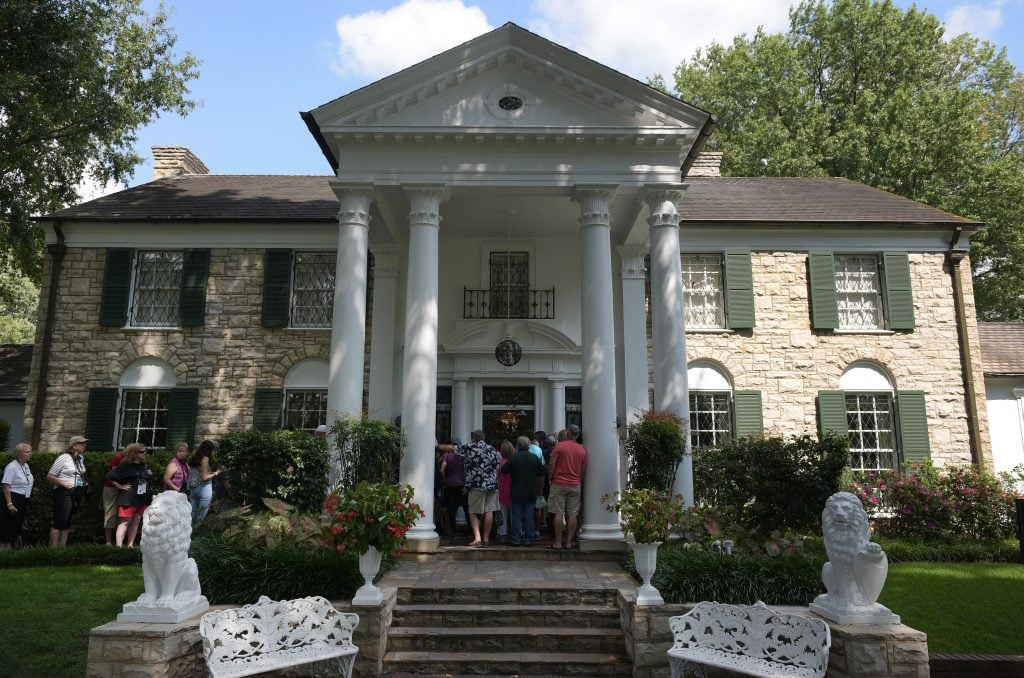Law & Politics
Sale of Elvis Presley’s Graceland Mansion Blocked by Lawsuit
Presley's heir Riley Keough is claiming fraud on the part of a loan company.

Presley's heir Riley Keough is claiming fraud on the part of a loan company.

Adam Schrader

A Tennessee judicial officer has blocked the sale of Graceland, the mansion in Memphis, Tennessee, once owned by Elvis Presley, after actor and Presley’s granddaughter Riley Keough filed a lawsuit claiming fraud on the part of a loan company.
Keough, 34, filed the lawsuit in the Shelby County Chancery Court on May 15 after Naussany Investments and Private Lending alleged that her mother Lisa Marie Presley owed the company $3.8 million at the time of her death in January 2023. The firm claimed that Lisa Marie had put the family’s Memphis estate up as collateral.
“Lisa Marie Presley never borrowed money from Naussany Investments and never gave a deed of trust to Naussany Investments,” lawyers for Keough wrote in the complaint. “Naussany Investments has now scheduled a non-judicial sale of Graceland based on the fraudulent deed of trust.”
Keough asserted that the documents manifested by Naussany Investments are “forgeries” and that, though the documents bear a signature that looks like that of Lisa Marie, she did not sign the documents.
As examples of the alleged fraud, Keough’s lawyers pointed to a deed of trust and standard promissory note that were purportedly acknowledged before notary public Kimberly Philbrick in Florida in May 2018. Philbrick said she didn’t notarize the documents. The promissory note contained language that it was acknowledged “by means of physical presence or online notarization,” but Florida didn’t allow online notarization until 2020.
Keough sought a declaratory injunction and temporary restraining order ahead of a hearing on May 22, a day before the expected sale. Chancellor JoeDae L. Jenkins denied an eleventh-hour motion by Naussany Investments to throw out the declaratory injunction, the court docket shows.

Visitors queueing to enter the Graceland mansion of Elvis Presley in Memphis, Tennessee, 2017. Photo: Mandel Ngan / AFP via Getty Images.
“The estate is considered unique under Tennessee law, and in being unique the loss of the real estate will be considered irreparable harm,” Jenkins said at the hearing, as reported by People. The chancellor also delayed the trial to allow Naussany Investments time to generate its defense against Keough’s allegations.
Jeffrey Germany, a lawyer for Keough, did not respond to a request for more information by press time.
Presley bought Graceland in 1957 at the height of his fame for about $102,500, seeking a sanctuary from the relentless spotlight. It became his final resting place after his death in 1977 at the age of 42. Other members of his family, including his parents and daughter Lisa Marie, are also buried there. The mansion, now managed by Elvis Presley Enterprises, was transformed into a public museum and memorial in 1982 to preserve his legacy. It was listed on the National Register of Historic Places in 1991 and declared a National Historic Landmark in 2006. At the site, guests can see an array of Elvis memorabilia, including his collection of cars and private planes.
“As the court has now made clear, there was no validity to the claims,” Elvis Presley Enterprises said in a statement. “There will be no foreclosure. Graceland will continue to operate as it has for the past 42 years, ensuring that Elvis fans from around the world can continue to have a best-in-class experience when visiting his iconic home.”